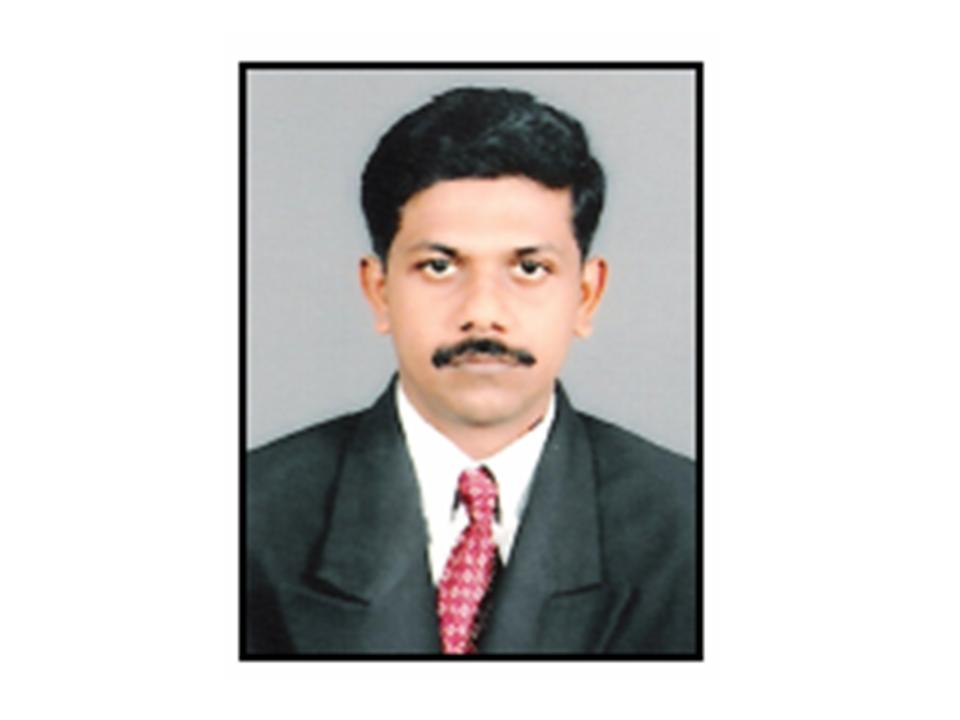Invited Speaker

Dr. U. Surendran
Land and Water Management Research GroupCentre for Water Resources Development and Management
Kozhikode 673571, India
Speech Title: Sustaining the crop productivity with water and nutrient management strategies under changing climate scenario
Abstract: Continuous intensive agriculture without adequate attention on rational soil management poses serious threat to the sustainability of agro-ecosystems. One of the consequences of irrational soil management under intensive cropping is the decline in soil fertility. Low crop productivity associated with high production costs is a great concern in agriculture. Additional stresses come from climate disruption, variability and change, resulting in impacts on water availability and temperature regimes over time and space. This paper describes about the Best Management Practices (BMPs) available. over time and space. This paper describes about the Best Management Practices (BMPs) available. To assess climate change related impacts on crop suitability and agro-ecologically attainable yield, the study applied the Agro Ecological Zonation (AEZ) methodology, which is jointly developed by Food and Agriculture Organization (FAO) and the International Institute for Applied Systems Analysis (IIASA). Range of scenarios for crop productivity for years 2041‒2070 (2050s) and 2071‒2100 (2080s) using the climatic condition based on four RCPs (2.6, 4.5, 6.0, and 8.5) adopted by the Intergovernmental Panel on Climate Change (IPCC) were generated using AEZ simulation modeling. Major crops grown in Kerala are coconut, arecanut, rubber, black pepper, coffee, tea, cardamom, paddy, tapioca, cashew andvegetables. The AEZ analysis for these crops showed that for ensemble mean of RCM outputs, under rain-fed conditions, yields of banana, arecanut, rubber, coffee, and black pepper show declines between 2.89 and 86.18 %. However, coconut and rice, under rain-fed conditions, show very minor increases of 3.17 and 0.99 % respectively. Under irrigated conditions, yields of coconut, arecanut, coffee, and black pepper show a decline between 3.83 and 86.18 %. However, if we look at all the models and different RCPs, results show that with few exceptions in most of the cases yields tend to decline with climate change. Drip fertigation was chosen as one of the BMPs and it was demonstrated across Kerala. Results from the project showed that the application of nutrients through drip fertigation improved the crop yield of all the demonstration plots and the increase in yield over control. Investments in climate smart agriculture, micro-irrigation practices especially drip fertigation, improved water conservation practices, development and management of natural resources through watershed and afforestation activities, conservation of crop biodiversity, etc. needs to be given focus to improve the production from farms. Besides, strategies needs to be adopted for improving the water and nutrient use efficiency were also discussed.
Biography: Dr. U Surendran, is a Senior Scientist and Head, Land and Water Management Research Group, of Centre for Water Resources Development and Management (CWRDM), having more than fifteen years of professional research experience in agricultural water management, Precision Farming with drip fertigation, crop simulation modelling, nutrient budgeting, salinity management and soil fertility management as main components. He has developed irrigation requirement package for crops such as coconut, pepper, arecanut and vegetables and few of them has been accepted as a technology by Kerala Agricultural University for dissemination to farmers. Currently he is focusing on climate change impact assessment on agricultural crops, and identifying the best management practices for improving the crop productivity and profitability to the farmers. He has more than 70 peer reviewed research articles and 5 Books with a Scopus h-index of 12. Currently serves as handling Editor in Scientific Reports- Nature Publishing Group and Associate Editor / Editorial Board member in journals like agricultural water management, Journal of Saudi Society of Agricultural Sciences, International Journal of Soil and Water Conservation and also reviewer of different scientific journals of Elsevier, Springer, Taylor and Francis, Nature Publishing group. Besides, he has a good know- how and field experience on drought management, problem soil management micro irrigations systems and has closely monitored about 4000 acres (for sugarcane, Coconut, vegetables etc) with drip, sprinkler and low cost drip irrigation techniques, starting from design, lay out, fertigation scheduling and maintenance of the system in Tamil Nadu and Kerala.
